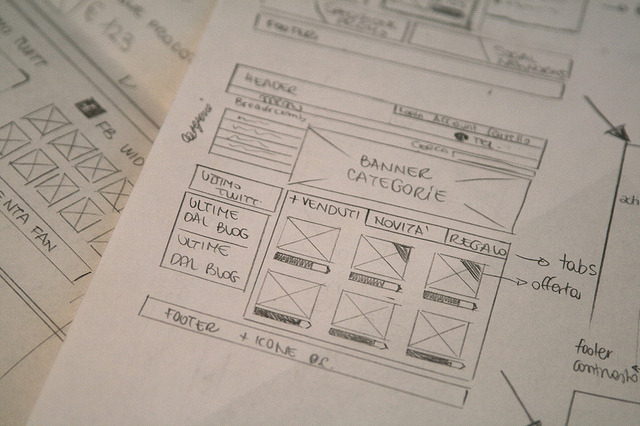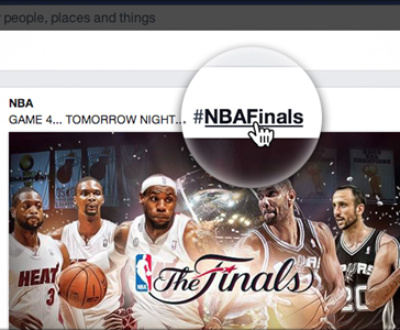This is the second post in a two-part series designed to help individuals and business owners avoid ethically questionable web agencies and make smart decisions regarding their presence on the web. Don’t forget to read up on part one: 5 Questions Terrible Web Agencies Hate.
 In “5 Questions Terrible Web Agencies Hate,” we talked about a dark and devious character known as Tricky Ol’ Sites McWeb, the sleaziest man in the west. McWeb, we discovered, is a metaphor for the unsavory side of the web development industry. His goal in life is to force you into a dependence upon his services and to provide you with the absolute minimum regarding design, code, and maintenance.
In “5 Questions Terrible Web Agencies Hate,” we talked about a dark and devious character known as Tricky Ol’ Sites McWeb, the sleaziest man in the west. McWeb, we discovered, is a metaphor for the unsavory side of the web development industry. His goal in life is to force you into a dependence upon his services and to provide you with the absolute minimum regarding design, code, and maintenance.
While it’s extremely important to learn how to avoid Ol’ McWeb, it is equally important to learn how to recognize when a web product is of good quality and when it falls short. Though you may be successful in finding a vendor who isn’t “out to get you,” the question of whether or not that vendor’s business model and development techniques can actually generate a quality product still remains.
In this part of our journey, we’ll take a look at some common goals website owners often have for their sites, and discuss how to properly measure your potential vendor against those goals. We’ll also take a look at ways to make sure your website can live up to them.
So without further ado, let’s discuss…
Some Reasonable Goals
By the time you walk into a dealership looking to buy a new car, you’ve usually got some pretty clear goals in mind. You don’t have to be an expert in mechanical engineering to formulate goals a little better than “I want a car that runs.” And the same is true with websites.
Having some clearer goals for building a website in mind will help you get a handle on what you should be expecting in terms of price and will give you an added ability to measure whether or not your web vendor can deliver a quality product. Here are a few common, reasonable goals for building a website I’d recommend you at least consider:
Goal 1: My website should be beautiful, smooth, modern, and unique.
Remember that your website serves the purpose of visual PR/Marketing in a very real sense. It is an extension of your brand. People will form conscious and subconscious opinions about you or your business from the way your website affects them.
If your site is beautiful and clean, people will make the assumption that you care about the impressions you make on your customers and that you work hard to be the best you can be.
On the other hand, if your website is a throwback to 1998, you run the risk of being viewed as disheveled or lazy, or as someone who is behind the times.
If your website is visibly broken, perhaps containing images that don’t show up or links that don’t go anywhere, or if it is otherwise frustrating to interact with, you’re dealing with an environment where people are already feeling annoyed while interacting with something they consider to be an extension of you or your business.
This, of course, will negatively affect your ability to earn a positive word from those who discuss their online explorations with friends and will be counterproductive in generating sales leads or return visitors.
As such, it is important to take a look at a potential vendor’s portfolio. In some cases, web outfits who are new on the scene may have a very minimal portfolio. This is not necessarily a bad thing since new agencies frequently offer lower pricing in order to build a reputation more quickly. In fact, copyrights and various other factors have put me in that position on more than one occasion. Fortunately, in cases like this, there are ways you can deduce a lot of information from the company’s own website regarding the quality of their work.
Try browsing around a potential vendor’s website and any available portfolio links. While viewing each site, keep the following questions in mind:
- What information am I looking for?
- Is it easy to find?
- Does the website entice me to communicate further with its owner?
- What assumptions am I making about the personality of the business based on my interaction with their website?
Know that if you have negative experiences while browsing these sites, there is a real risk that this vendor will create a website for you that provides these same negative experiences to others.
*Note: You don’t need to view a huge portfolio in order to determine whether or not your agency or contractor is right for you. Sometimes web agencies purposefully remove older websites from portfolios because those examples are no longer a representation of how they design and develop websites. This is actually a good thing, and shows they are committed to being up-to-date.
Here’s another tip:
If, while looking at these other sites, you come across any moving elements (not counting videos), put your mouse pointer over them and do a “right click” so that a little menu pops up. If you see any items in that menu that mention “Adobe Flash,” this is actually a warning sign.
Flash animations used to be a staple of cutting edge websites in the recent past. However, with Apple’s decision not to support Flash on its mobile devices and the increased need for responsive web design, Flash animations have become an indicator of outdated development techniques. In fact, there is practically nothing that can be done with Flash that can’t be done with more modern techniques that are more universally supported by a wider array of devices.
Goal 2: My website should be easily found on search engines.
Every website client takes special care to mention their lofty search engine dreams during the first consultation with any potential vendor. It is almost instinctual to expect that your website should show up at the top of any and all relevant Google results.
But search engine optimization, also known as “SEO,” is not a simple task. Honest agencies that have access to real SEO skills are unfazed by this while some smaller outfits will tell you outright that you are asking for something fairly involved and that you should seek the help of an additional expert. We all have our specialties, after all. Remember that SEO is something that takes time and won’t be at 100% when your website launches. Instead, expect that your website is built for SEO and ask what that means. How can you contribute to your own SEO when your web agency is gone?
Vendors like Tricky Ol’ Sites McWeb, on the other hand, will also appear unfazed by this goal. They will readily agree to it and subsequently attempt to confuse their clients by claiming that they’ve accomplished it when they really haven’t.
“Just search your company name,” they’ll say. And lo and behold, when you do, your website is listed right there at the top of page 1. That’s good and means that your site is indexing, but indexing for your company name is not very competitive and not difficult. Try searching any phrase that someone who doesn’t already know about your company might actually use. Where you show up in these results is directly related to your SEO.
You can also figure out whether or not a vendor you’re considering can actually offer professional SEO by asking them to explain the most recent change to Google’s algorithm, what its name was, and how it has affected their strategies. Quite honestly, you won’t even need to know the answers to these questions. All you’ll need to look for is whether or not they can answer with specific information. If not, your vendor is probably overselling their talents.
But why would someone offer SEO, knowing full well that they can’t really deliver? Isn’t that false advertising?
I’m afraid that, as usual, the devil is in the details.
You see, somewhere around 2008 (a time frame that correlates with Twitter’s rise in nationwide popularity), everyone and their dog suddenly became an “SEO Expert.” For those looking for a get-web-famous-quick trick, the claim of SEO expertise sounded smart and modern, and was difficult to disprove as part of a person’s online identity. As such, it became useful in ratcheting up some amount of superficial clout and seemed especially effective in gaining Twitter followers specifically.
It’s worth noting that, at the time of this writing, the portion of Twitter previously occupied by these folks has become a post-apocalyptic wasteland inhabited mainly by software robots automatically posting content and following each other with no real purpose in their existence.
The residual effects are that, now, the real SEO industry has struggled to avoid becoming just one more meaningless buzzword. On top of that, any agency can technically claim to provide “optimization” as long as they do at least one little thing that has a positive effect upon how search engines will treat a website, no matter how minuscule that effect may be.
This, of course, is usually nowhere near enough to produce real results. Fortunately, as a web developer, I can attest to the fact that real SEO does exist. When you find it, it is explainable and understandable, and its results are easily measurable. However, a realistic expectation is that you will have to pay extra for meaningful SEO. True SEO is a labor of love and a good SEO expert is worth the investment.
This, of course, leads us to the next common goal which is admittedly somewhat uncomfortable.
Goal 3: My website should be cheap.
I’m going to be upfront with you here. Price is all about trade-offs. A cheap car is a cheap car and cheap jewelry is cheap jewelry. Websites are no different and, as far as pricing goes, they can often be in the same league with these other products. What’s best is that you form some realistic expectations about what you can get with the budget you have. So let’s revise the wording of this goal:
Goal 3 (revised): I should pay a fair price for the services I need.
The largest corporations with the most web traffic spend hundred of thousands of dollars per year (in some cases per month) to operate their websites. You would hope, by that logic, that the smallest businesses with little to no web traffic or lead generation pay next to nothing for their sites. In some cases that’s true. But in the cases where unprepared hopefuls have fallen victim to Sites McWeb, they have often lost tens of thousands of dollars just getting the thing up and running.
In my experience there is an interesting spectrum of web development price. For gazillions of dollars you could run CNN.com and have your own in-house IT and design teams constantly updating content in near real-time while your personal ops crew manages servers kept in your own data center.
On the other hand, for $20/month, you could choose a beautiful, pre-made website template built on a drag-and-drop system that allows you to “create your own website” within minutes. It’s possible that this could be the right solution for you, but it’s also important to know the full story.
In a system like this, your site will end up looking just like hundreds of other sites whose owners have chosen the same template. There will be no strategy discussion about how to make the minimal content types available perform well for your business. You’ll have to accept the fact that support requests will require you to wait in a queue with hundreds of other site owners, and that you’ll be forfeiting both ownership of the code powering your website and the ability to request any changes that aren’t superficial.
You’ll also just have to hope that the template you’ve chosen is compatible with older versions of popular web browsers and that it works well on mobile devices. Furthermore, you’ll need to realize that the chances of your website showing up near the top of any relevant search results will be very small at best. Meaningful SEO requires continuous, personal upkeep and so any SEO they offer will, in all likelihood, be virtually bogus.
Then there are other options.
For a few thousand dollars (there is a wide range of factors affecting that price), you can have a professional, custom design created by a talented web designer that gets converted into a well-coded website built on a simple, easy-to-use platform with a dashboard where you can log in and do things for yourself if you so choose. It’ll include a guarantee of mobile responsiveness, the potential to actually show up in real search results, and last but not least, personal discussions with you about content strategy. The more features and pages you add to the website, the higher the price will go from that point.
In full disclosure, I want to be clear that we are talking about fairly basic, informational websites here. There are certain factors like the inclusion of custom application services (imagine you wanted to build Netflix.com, for example), booking engines and scheduling, large number of pages/lots of content, and certain forms of eCommerce that will bring your cost to well above $10,000.00 regardless of what avenue you choose.
Then, of course, there’s the option of being roped in by Sites McWeb who, for upwards of $15k, will give you a terrible quality product, blame you for problems, narrow your viewing audience, take forever to do anything you ask, and frustrate your users with a bad website experience, all while creating an environment that makes it very difficult for you to leave him. Usually this type of website is also built with no content or design strategy whatsoever behind it.
Simply put, it’s important to realize that as price goes down, you will necessarily be sacrificing certain things. That’s not always bad and we’ve been talking about very broad generalizations here. Any fair web company will work with you to honestly assess what you can afford and, as long as your expectations are realistic, come up with a plan you can be happy about.
Goal 4: My website should be able to do its job.
Unless you are a casual blogger, you’re probably expecting your website to help you make money. Even if that’s not the end goal, you’d still like it to attract a sizable amount of viewers and potential customers, right?
Sites McWeb won’t want you to have access to information about how your website is actually doing. He’s counting on you to be unsure of your ability to understand “web analytics” and the supposed intricacies of interface design, and just trust him to to take care of everything.
But know this: if you prepare yourself well, you’ll eventually find yourself in the winning position of legally owning your website. And as the owner, you should have a ability to see the numbers.
Before signing any contracts, you should sit down with potential vendors and have a discussion about how they intend to create a website that will execute the job you’ve delegated to it. If it’s meant to entice people to call you directly, press your vendor to explain a real strategy for making that happen.
Once you’ve agreed on a strategy, tactfully demand the inclusion of some good analytics software. By “analytics software” I mean a program that plugs into your website and keeps track of how many visitors you’ve had, where they came from, how long they stayed, and what parts of your site they explored. There is no need to be intimidated by software like this because the good ones are very clear and make use of colorful charts and graphs to help simplify the data. They are designed with you, the average person, in mind.
Including software like this on your site ought to be no trouble at all since there are tons of options available (some of them for free) and so you should really only be incurring the extra cost of a little more labor to include it in the code.
Goal 5: I should come out of my website deal as a winner.
Yes. Yes you should. Good deals are always win-win. Both sides usually have to compromise a little of what they want, but you should certainly not be signing any deals that make you feel like you’ve lost or been tricked somehow. By the end of the process you should feel confident that:
- Your website will be beautiful and well-made.
- Your website will be search engine-friendly.
- Your website will be worth the price you paid.
- Your website will do the job for which it was intended.
Hopefully, you will have also read “5 Questions Terrible Web Agencies Hate” and successfully avoided getting tricked by your local Sites McWeb.
In the end, it’s important to remember that your specialty lies in doing what you do, which does not necessarily involve a sophisticated knowledge of computer science or web development. Good web agencies will respect this and you’ll be able to sense that respect throughout the process. While maintaining that mutual respect, you should demand the website you deserve. Learn about it. Demand it. Get it. Love it. And let’s all make the internet a better place to be.
No, not you, McWeb. You get outta’ here.
Photo credit: EMMEALCUBO (Creative Commons)














Pingback: 5 Reasonable Goals for Building a Website | Watch List News
Pingback: 5 Reasonable Goals for Building a Website - All PR News